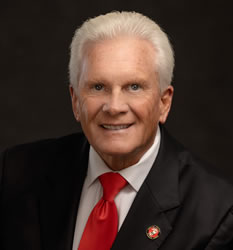Your expert disclosure is due next month – now is when you should start thinking about retaining an expert, right? While every case is different, the “just-in-time” engagement of an expert may not be the best choice for your client. Would it surprise you to know that some of the most experienced attorneys specializing in white collar criminal defense casvves involve their forensic accounting expert as soon as the client receives a target letter, even before it is known whether or not charges will be filed? There is a very good reason to utilize the strategy of involving your expert early in your case: it leverages the expert’s work to your advantage, and increases your chances for success.
There are two ways to use expert services to benefit your client: the consulting expert and the testifying expert. In some cases the same individual can serve in both capacities, although this is not recommended and should only be done with careful deliberation, as will be discussed. Regardless of which type of expert you will retain, it is important to be clear about the desired outcome for your case when you select and retain your expert and their firm. In other words, begin with the end in mind. This article will discuss the forensic accounting expert, but these same strategies apply to other types of experts in a variety of fields.
The consulting expert is a member of the legal team whose job it is to support the advocacy of the attorney. The consulting expert identifies the strengths and weaknesses in the client’s position with respect to the evidence, suggests alternate theories of the case based on the evidence, explains accounting concepts and terminology and sheds light on the potential ramifications of the accounting transactions. The consulting expert’s work is typically protected by attorney client privilege. However, if the consulting expert later testifies, the privilege will almost certainly be pierced and all of the expert’s workproduct will be subject to disclosure, including the expert’s notes. Typically, a consulting expert would not testify, but the attorney must clearly communicate and delineate roles with the expert throughout the case. In some cases it may be unavoidable that you will need the consulting expert to testify, but this should be done with an abundance of caution and consideration of the risks to your client; it is generally not recommended. A savvy consulting expert will assist the attorney in balancing between potential discovery concerns and any desire for written workproduct.
For example, in a case including allegations of white collar crime, tax evasion, embezzlement or fraud, the forensic accountant will analyze the documents, and will then meet with the legal team, and together they will review the accounting records. The consulting expert can assist the attorney in obtaining documents and discovery that the attorney might not have considered without the expert’s advice. The expert may give meaning to documents in discovery which the government didn’t analyze or understand. The expert can also suggest the acquisition of other documents which the government failed to obtain. This additional evidence can sometimes make or break the case. Why hire the consulting expert when your client first receives a target letter, even before it’s known whether or not charges will be filed? The consulting expert can conduct a limited assessment of the issues of concern and give
you an idea of your client’s exposure. This information, received in advance of any indictment or charges being filed, makes you a more effective advocate for your client.
In the alternative, the testifying expert is a neutral with no advocacy support role - unlike the consulting expert, who is part of the legal team with a role in support of the attorney’s advocacy. Although you don’t need the testifying expert quite as early as you will wish to engage the consulting expert, you will still be well served to call on them as early as possible. If you first engage the expert shortly before disclosure is due, you will get a very “qualified” opinion – that is an opinion which is full of qualifiers. When you give your expert limited time to examine records and evidence, they must qualify their opinion with words or phrases such as “probably”, “most likely”, “from my initial analysis” or “based on my limited test work”. Such qualifiers reduce the absolute quality of your expert’s opinion, and can subject their work to damaging cross-examination.
Examination and analysis of documents and evidence, whether accounting records or some other evidence to be reviewed by an expert, will take time. Very often the testifying expert will request records that the attorney will not have obtained; record production and discovery will take additional time, and asking your expert to produce an opinion with only a portion of the relevant evidence can result in an incomplete opinion. The earlier you hire your expert, and the more time they have to examine or test records and develop their complete opinion, the greater their ability to provide an opinion which will benefit your client.
Retaining your testifying expert early gives you one other tactical advantage: If they work through the evidence and their opinion is contrary to your clients interests, or if they discover additional evidence that the prosecution didn’t find but that could be very damaging to your client, you still have time to change strategies, conduct further investigation, negotiate a plea deal or take other actions. If you’ve waited until the last minute to hire the expert, there may be insufficient time to alter your case strategy.
Where should you find your expert? Whether you’re seeking a consulting expert to strategize as part of the legal team, or a testifying expert to give their neutral opinion in court, the best expert referrals come from respected attorneys who have worked closely with the expert and their firm. Good referral sources include members of the NMCDLA’s listserv and the list of experts at http://www.nmcdla.org/. Experts who volunteer as CLE speakers are another great source of expertise, and you have the added opportunity to gauge their effectiveness. Their presentation is a window into how they will project on the stand - whether they are engaging and informative, or dry and plodding, this is how they will likely be perceived by the jury. There are websites that accept fees from individuals to promote them as national experts. While some of these experts are exceptionally qualified, others are not well respected. Be wary of any expert who won’t give you ten minutes of their time in a free consultation to discuss the general facts of your case to determine their suitability and experience. Whatever specialty you require, seek out an expert who routinely works both sides of the aisle, who is known for the integrity of their opinion regardless of which side hired them, and who can explain technical material without using industry jargon or terminology that the jury will find confusing or downright intractable.
Is it ever too soon to start seeking out an expert? If you’re going to specialize in a particular area of criminal defense law, it might be worth your time to seek out experts in that specialty even before you have a client. When it comes to engaging an expert, whether as a consultant or as a testifying expert, the earlier in the case you retain them, the greater the likelihood that they can assist you in your quest to obtain the best possible outcome for your client.
Sources
Federal Rules of Evidence [Electronic (2010). Version]. Retrieved 11/4/2011 from http://www.law.cornell.edu/rulesfre/#article_vii.
New Mexico Compilation Commission. (2011). New Mexico Rules Unannotated. Retrieved 11/1/11, from href="http://search/nmcompcomm.us/nmsu/lpext.dll?f=templates&fn=main-h. htm&2.0.
©Copyright - All Rights Reserved The Association of Certified Fraud Examiners and Author.
DO NOT REPRODUCE WITHOUT WRITTEN PERMISSION BY AUTHOR.











